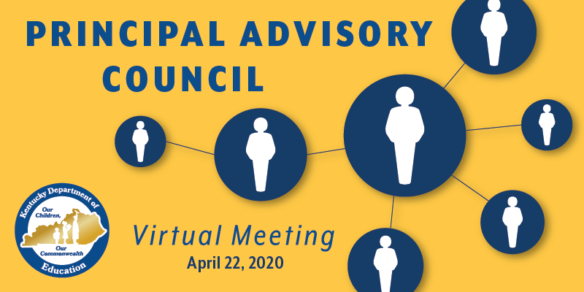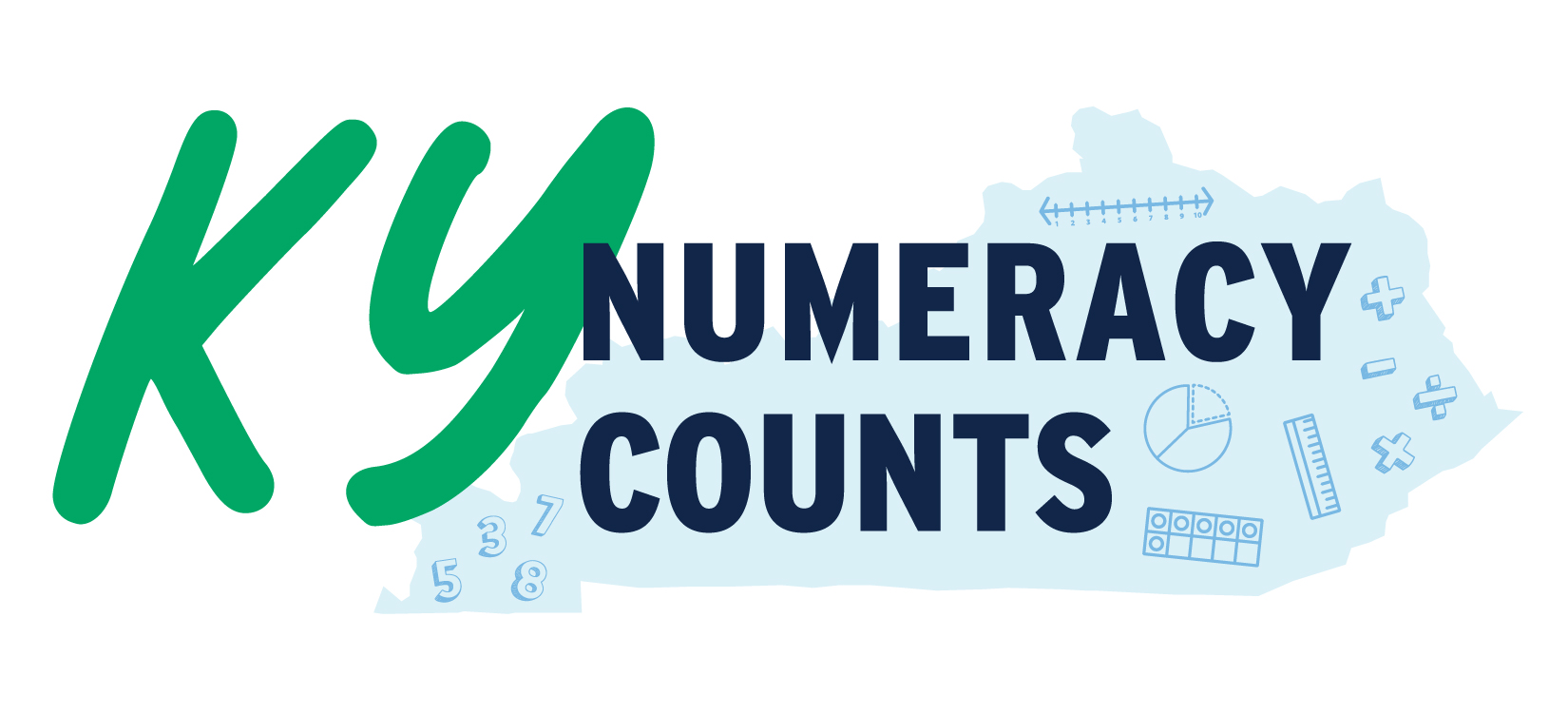
- Interim Education Commissioner Kevin C. Brown said that one superintendent already has sent a draft to KDE on their district’s plan of action if all students weren’t allowed to be in the building at one time.
- KDE’s Director of Innovation David Cook spoke with the principals during the virtual meeting and expressed his appreciation for how their schools have implemented NTI.
By Jacob Perkins
Jacob.perkins@education.ky.gov
The Principal Advisory Council (PrAC) met virtually April 22 to discuss end-of-year concerns and the likelihood of having an alternate schedule as the 2020-2021 school year begins.
Lisa Perdue, principal of Cumberland County Elementary, raised the question of what schools and districts should be doing now to prepare for the possibility of schools not being able to open in the fall due to COVID-19.
The federal government has issued a three-phased plan that provides guidance to states on benchmarks they will need to meet in order to begin the reopening process. Currently, Kentucky has not yet entered phase one. However, Gov. Andy Beshear has stated that he hopes that process will begin in early May.
Interim Education Commissioner Kevin C. Brown said one superintendent already has sent a draft to the Kentucky Department of Education (KDE) on their district’s plan of action if all students weren’t allowed to be in the building at one time.
“The days were divided up into Group A and Group B,” Brown said of the superintendent’s plan. “Group A comes in on Monday, Wednesday and Friday. Group B comes in on Tuesday and Thursday. For a plan that we never thought we would have to have, it was well thought out.”
Brown, acknowledging that it may not give the principals on the council a lot of comfort, said that the department will be working throughout the summer to assist districts if they decide to head in that direction.
“It’s very possible that we get to the beginning of the school year and may be just be in phase two,” said Brown said. “The governor wants us to think positively that we won’t, but at the same time to try and be prepared.”
KDE Associate Commissioner Kelly Foster echoed Brown and said that it would be a wise decision for that planning to begin sooner rather than later.
“I know we don’t want to think about that, but I think we will be in a lot better shape if we start to have those conversations now,” said Foster.
Non-Traditional Instruction
KDE’s Director of Innovation and Coordinator of the Non-Traditional Instruction (NTI) Program David Cook spoke with the principals during the virtual meeting and expressed his appreciation for how their schools have implemented NTI.
“We have a lot of things to be thankful for in Kentucky,” he said. “One of them is the fact that all of you have stepped up to educate, feed and support kids and your teachers during this time.”
According to Cook, 2,569 days of instruction have been saved through NTI since March 16. Because of this, students in Kentucky are less likely to fall behind academically compared to states that have ceased instruction entirely. As of April 22, Kentucky had a 93% participation rate through NTI. This matches the participation rate of regular pre-COVID-19 NTI days – which would have been used for instances like extreme weather or the flu.
“As we begin to look forward toward the future once we get past the pandemic, it might be time to consider what normal looks like,” Cook said.
Some areas that Cook feels educators can capitalize on during this time are focusing on professional development opportunities for remote learning and rethinking how content is delivered.
“We hope that teachers will incorporate some of the things that they’ve been using during this time as they improve their instructional practices moving forward,” he said.
Impact Kentucky
Rob Akers, associate commissioner in KDE’s Office of Educator Licensure and Effectiveness (OELE), addressed the PrAC about the delay in the release of the Impact Kentucky working conditions survey data. Certified staff members in schools across Kentucky were asked to take the survey between Jan. 13 and Feb. 21 to provide their schools with critical data that guides implementation of policies and practices that maximize teacher effectiveness.
“As a leadership team, we decided that we didn’t want to burden districts with the results and have them go unnoticed,” said Akers. “You have more important things to be worrying about right now in terms of educating, feeding and supporting.”
Initially scheduled to be released March 23, Akers and his team in OELE are consulting with the array of KDE advisory groups to get a feel for the appropriate time to release the data.
“We’ve talked to teachers and they, of course, would like to see the results sooner than later. Superintendents have said not until June,” said Akers. “There are folks who would like to see it now and be able to use them to inform how they will use remaining contract days with their staff for next year.”
Akers added that there are two options for releasing the data. The first option is opening the results to the public and the other would be to provide superintendents the results and then they would distribute the data to individual schools within the district.
The current plan is for OELE to take the feedback and discuss internally to decide the best time to release the data.
The PrAC is scheduled to meet again on July 22. At this time, due to the uncertain nature of the COVID-19 crisis, it is unclear if this will be a face-to-face meeting at KDE headquarters in Frankfort or a virtual meeting.
For more information about COVID-19:
- Kentucky Department for Public Health’s COVID-19 webpage
- KDE’s COVID-19 webpage
- COVID-19 Hotline (800) 722-5725




As a bus driver for 33 years I want to thank you all for taking the best car of us all. I can’t image being in a bus with 70 students and not knowing what or where they have been, we get coughed on, sneezed on kids throw up on us and etc. So please as you put the plans together remember your bus drivers. Thank you !!!!
Just a suggestion…Why not have the students in school Mon /Wed and then Tues/Thurs. That would give the staff Fridays to meet and prepare for the next week.